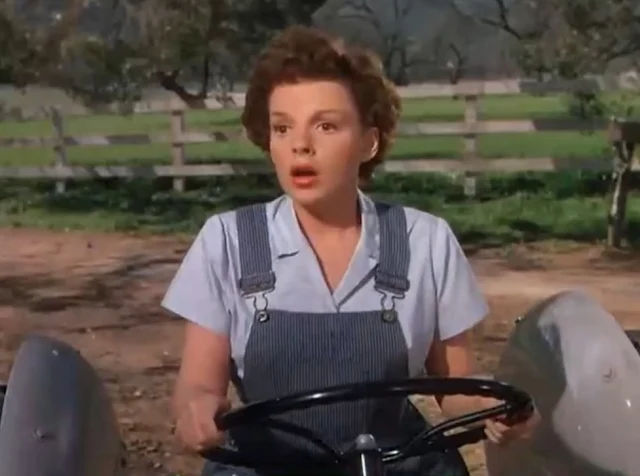 |
| Frank Sinatra, Jules Munshin, and Gene Kelly in On the Town |
A funny thing happened after I watched On the Town: I found myself humming "Lucky to Be Me" and "Some Other Time," songs by Leonard Bernstein with lyrics by Adolph Green and Betty Comden that aren't in the movie. They were in the original Broadway production, but were cut by producer Roger Edens, along with several others, and replaced by his own songs, almost all of which are forgettable. Bernstein was pissed off, as he should have been: "Lucky to Be Me" was perfect for one of Gene Kelly's numbers, and "Some Other Time" almost begged to be sung by Frank Sinatra and the rest of the company. Those excisions, and the Breen Office's insistence that the song "New York, New York" had to describe the city as "a wonderful town," instead of the original "helluva town," weigh down this much-loved but overrated MGM musical, which at least managed to do some location filming in the city after Kelly and co-director Stanley Donen rebelled against shooting the entire musical in the New York sets of the studio's back lot. The location shots give some life to the movie, but it still looks cheap and stagy in comparison with later, more lavish productions like An American in Paris (1951). Kelly and Donen, along with Comden, Green, and cinematographer Harold Rosson, would redeem themselves with Singin' in the Rain (1952), which has the wit and buoyancy On the Town sadly lacks.



















